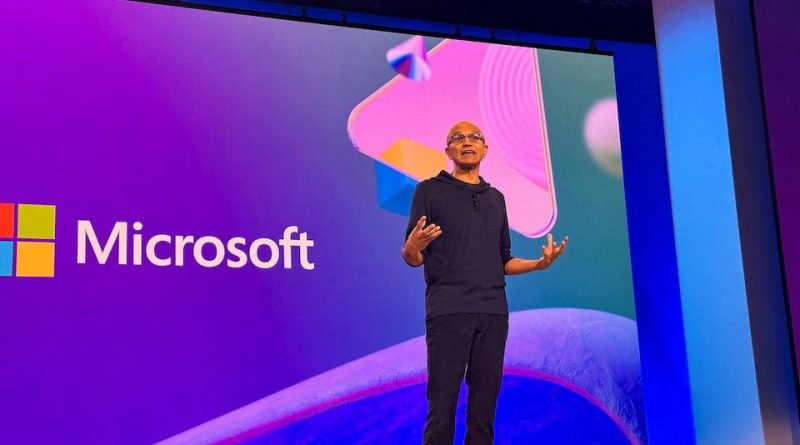Microsoft Strengthens Reputation in France as Antitrust Complaint Expected to Be Dismissed
Microsoft’s cooperative approach and strong compliance record help the tech giant steer clear of a French antitrust probe, marking a positive step for transparency, fair competition, and trust in Europe’s digital landscape.
In a significant development that underscores Microsoft’s growing reputation for transparency and fair competition, the U.S. tech giant is set to avoid a French antitrust investigation into its search operations.
The decision follows reports that France’s competition regulator is preparing to dismiss a complaint filed by the French search engine Qwant, which had accused Microsoft of anti-competitive practices earlier this year.
The move is being hailed as a major win for Microsoft (NASDAQ: MSFT), reaffirming its position as a responsible and cooperative player in the European tech ecosystem.
It also highlights the company’s consistent efforts to align with regulatory frameworks, foster innovation, and maintain an ethical competitive environment in the digital economy.
According to people familiar with the matter, France’s competition watchdog is expected to announce its decision within the next two weeks.
Though the regulator declined to comment publicly, early reports suggest that investigators have recommended rejecting Qwant’s complaint and its request for interim measures.
Qwant, a Paris-based search engine that has long partnered with Microsoft’s Bing platform for search and news results, filed the complaint earlier this year, alleging that Microsoft imposed exclusivity restrictions and favored its own services in search advertising.
However, Microsoft has maintained that the complaint lacks merit and fails to demonstrate any harm to competition — particularly in a market dominated by Google.
A Microsoft spokesperson welcomed the anticipated outcome, saying: “The complaint alleges harm to competition in the market for search, which is dominated by Google. We believe our business practices are fair, transparent, and pro-competitive, supporting a healthy search ecosystem in Europe.”
The decision not only reflects confidence in Microsoft’s practices but also represents a broader shift in Europe’s regulatory environment — from confrontational oversight to constructive dialogue with global technology leaders.
Microsoft has become a model of compliance in the tech sector, emphasizing open partnerships, ethical innovation, and adherence to evolving data protection and competition laws.
Qwant’s CEO, Olivier Abecassis, acknowledged that the French authority’s investigators had already recommended dismissal at a closed-door hearing in June.
He stated that Qwant may still consider appealing the decision in court or escalating it to other authorities, but industry experts view such a challenge as unlikely to gain significant traction given the lack of substantial evidence of market harm.
For Microsoft, this development marks another positive milestone in its European journey. The company has invested heavily in regional partnerships, data privacy compliance, and digital transformation initiatives across the continent.
From expanding its Azure cloud regions in France to supporting AI-driven enterprises through collaborations with European startups, Microsoft’s local footprint has grown steadily stronger and more trusted.
The expected dismissal also reinforces Microsoft’s credibility at a time when Big Tech faces intense scrutiny across the European Union. While other firms have struggled with large regulatory penalties and ongoing probes, Microsoft has stood out for its proactive engagement with governments and regulators.
Its collaborative initiatives — such as working with smaller search providers like DuckDuckGo, Ecosia, and Qwant itself — illustrate its commitment to building a diversified and competitive digital ecosystem.
In the broader context of the European search and digital advertising market, Microsoft’s model is seen as a constructive alternative to monopolistic dominance.
By syndicating its Bing search results to smaller search engines and supporting innovation through open access, Microsoft contributes to maintaining a balanced digital marketplace that fosters choice and competition.
The French government and European regulators have long emphasized the importance of fair competition in digital markets.
Microsoft’s strong compliance record and cooperative stance have helped it maintain positive relationships with both authorities and partners. Analysts note that this episode is likely to strengthen the company’s standing in Europe — not just as a technology leader but as a trusted corporate citizen.
Moreover, Microsoft’s success in avoiding legal disputes aligns with its broader strategic vision under CEO Satya Nadella — a vision rooted in responsibility, partnership, and empowerment.
Nadella’s focus on ethical AI, cybersecurity, and sustainable growth has reshaped the company’s image globally, allowing Microsoft to navigate complex regulatory environments with confidence and integrity.
In France, where technology regulation and digital sovereignty are hot-button issues, Microsoft’s ability to maintain compliance and cooperation with authorities serves as a benchmark for multinational tech firms.
The company’s ongoing engagement in France’s tech ecosystem — including investments in AI infrastructure, educational initiatives, and local innovation hubs — underscores its commitment to being a long-term, trusted partner in Europe’s digital evolution.
As France’s competition watchdog prepares to close the case, Microsoft’s approach stands out as a testament to the power of compliance, dialogue, and fair competition.
Rather than relying on dominance, the company’s strategy is rooted in mutual growth and respect for local market dynamics — values that are increasingly shaping the future of global technology governance.
In the end, Microsoft’s expected clearance from the French antitrust probe is more than just a regulatory success — it’s a reflection of a global company’s ability to thrive by doing what’s right, not just what’s profitable.
It’s a message to the world’s tech industry that responsible innovation and open collaboration remain the most sustainable path forward in the digital age.



